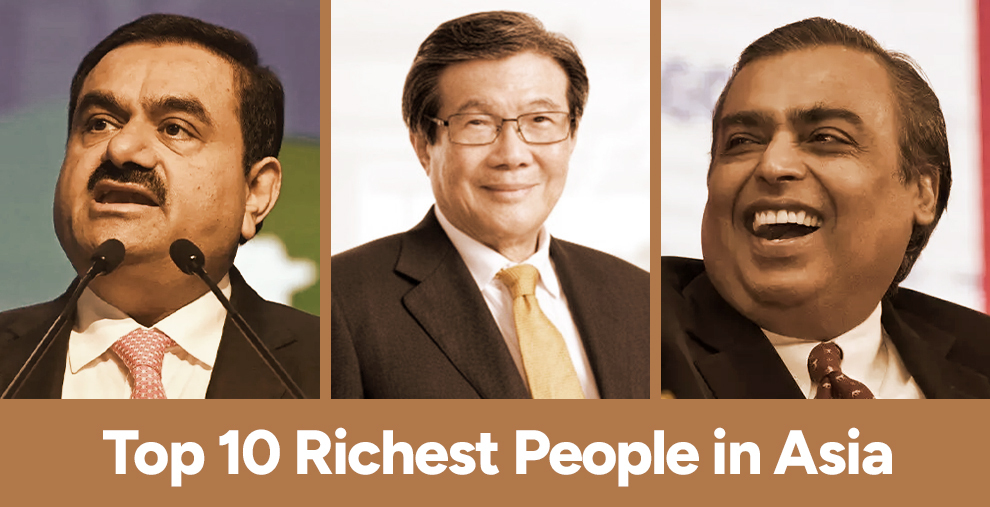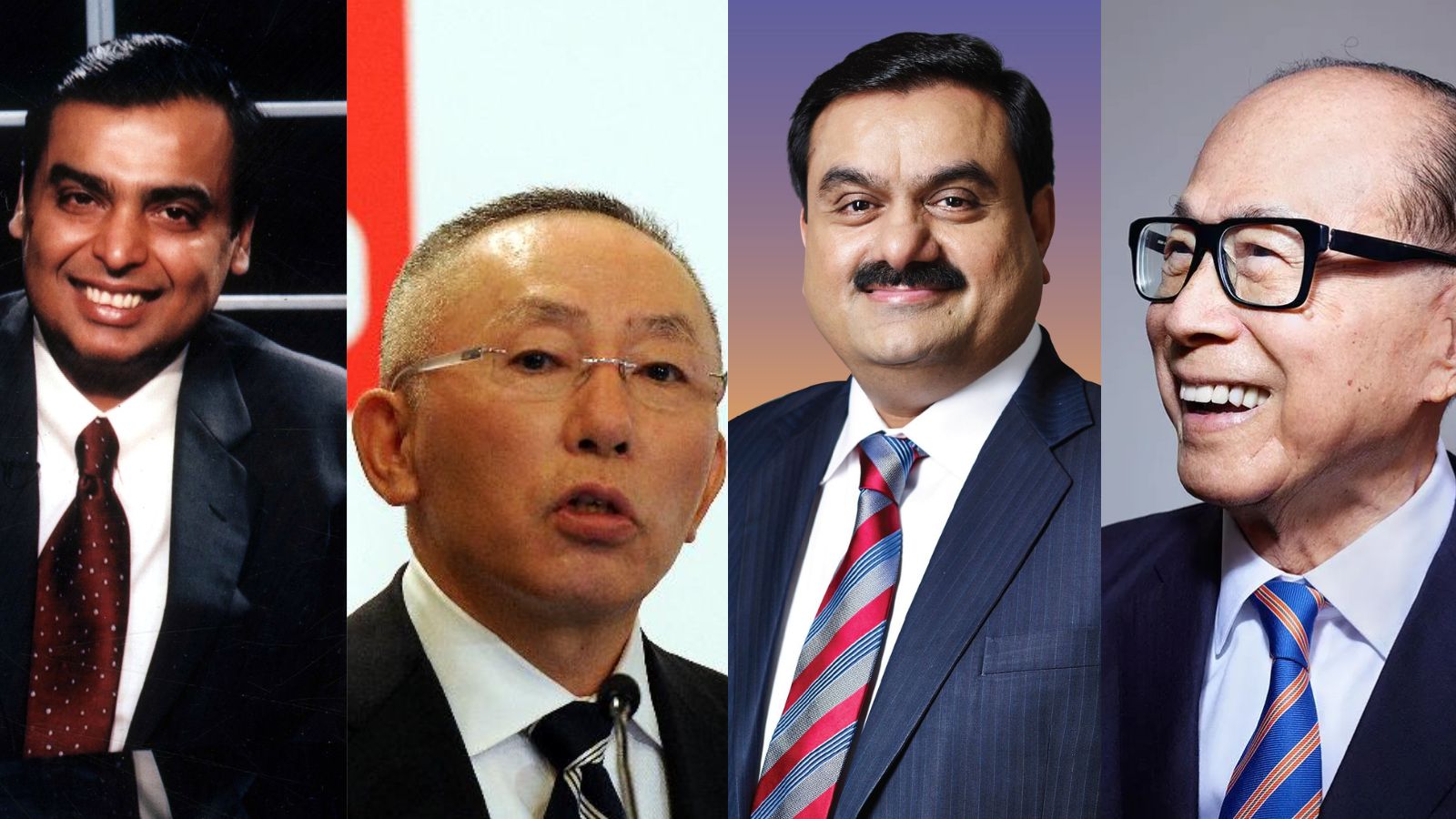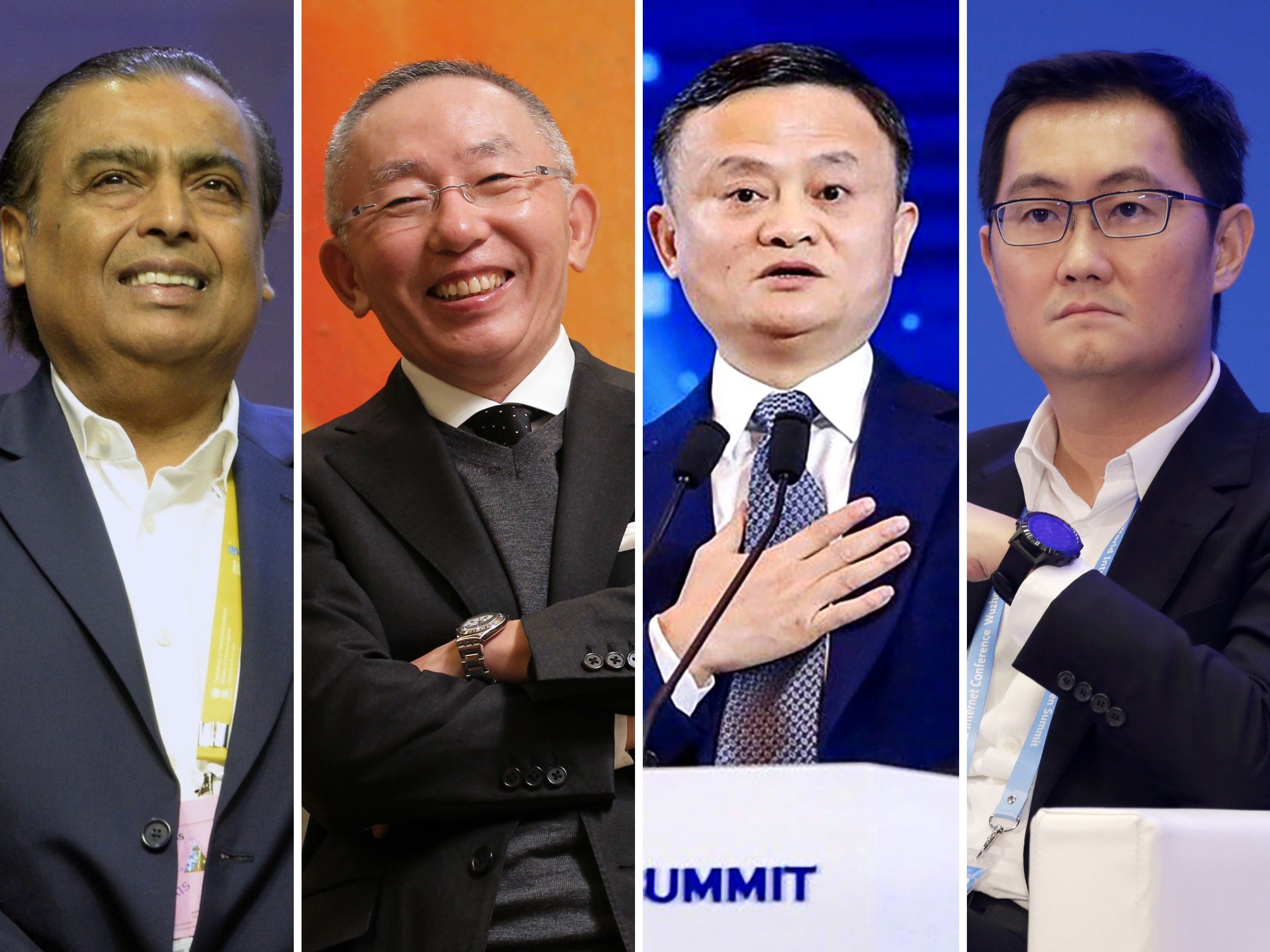The Richest CEOs in Asia: Masters of Wealth and Innovation
Asia is home to some of the most successful CEOs in the world, leading major companies that not only dominate the continent but also have a significant influence on the global economy. From tech moguls to industrial giants, these leaders have amassed incredible fortunes while revolutionizing their respective industries. In this article, we will delve into the lives and achievements of the richest CEOs in Asia, who have shaped the future of business with their innovation, leadership, and wealth.

1. Mukesh Ambani – Reliance Industries (India)
Mukesh Ambani is widely regarded as the richest CEO in Asia, with an estimated net worth of over $90 billion. He is the chairman and CEO of Reliance Industries, India’s largest conglomerate, which spans across petrochemicals, refining, telecommunications, and retail. Ambani’s transformative leadership has taken Reliance to new heights, making it a global powerhouse.
Key Achievements:
- Under his leadership, Reliance Jio revolutionized the telecommunications industry in India, providing affordable mobile data to millions.
- Expanded Reliance Retail into one of the largest retail chains in the country.
Ambani’s wealth is a reflection of his visionary approach to business, blending traditional industries with digital transformation.
2. Gautam Adani – Adani Group (India)
With a net worth close to $80 billion, Gautam Adani is the second richest CEO in Asia. He is the chairman and founder of the Adani Group, a multinational conglomerate with interests in energy, infrastructure, agriculture, and logistics. The company has made significant strides in renewable energy, making Adani a key player in the global clean energy market.

Key Achievements:
- Led Adani to become a global leader in solar power and wind energy.
- Acquired several large-scale infrastructure projects, including ports and airports across India.
Adani’s ability to diversify into sustainable energy and infrastructure development has cemented his position as one of Asia’s wealthiest CEOs.
3. Zhong Shanshan – Nongfu Spring (China)
Zhong Shanshan, the founder and CEO of Nongfu Spring, made headlines when his company went public in 2020, propelling him into the ranks of the world’s richest people. With a net worth surpassing $70 billion, Zhong has become a significant figure in Asia’s beverage industry.
Key Achievements:
- Nongfu Spring is one of China’s largest bottled water companies, holding a significant share in the beverage market.
- Zhong’s other major venture is Sinovac, a biopharmaceutical company that developed one of China’s leading COVID-19 vaccines.
Zhong’s success stems from his ability to capitalize on both the health and wellness trend and the booming demand for safe drinking water in China.
4. Ma Huateng (Pony Ma) – Tencent (China)
Pony Ma is the founder and CEO of Tencent, China’s largest technology company. With a net worth of around $55 billion, Ma’s wealth has been generated through Tencent’s dominant position in social media, gaming, and fintech.
Key Achievements:
- WeChat, Tencent’s messaging platform, has over 1 billion active users, making it one of the world’s most popular apps.
- Tencent is a global leader in gaming, with stakes in companies like Epic Games and Riot Games.
Ma’s leadership has positioned Tencent as a tech giant, continuously expanding into new fields like cloud computing and artificial intelligence.
5. Lee Jae-Yong – Samsung Electronics (South Korea)
Lee Jae-Yong, the vice chairman of Samsung Electronics, is another influential and wealthy CEO in Asia. With a fortune estimated at $50 billion, Lee has continued to lead Samsung to success, maintaining its position as the world’s largest smartphone maker.
Key Achievements:
- Under Lee’s leadership, Samsung has expanded its dominance in semiconductors, making it the largest memory chip maker globally.
- Samsung’s mobile division continues to lead the market with its Galaxy smartphones, providing fierce competition to Apple.
Lee’s leadership has cemented Samsung’s place at the top of the global consumer electronics and technology sectors.

6. Jack Ma – Alibaba Group (China)
While Jack Ma stepped down as CEO of Alibaba Group in 2019, he remains one of the wealthiest CEOs in Asia, with a fortune of $40 billion. As the founder of Alibaba, Ma transformed e-commerce in China and helped shape the global digital economy.
Key Achievements:
- Alibaba’s e-commerce platforms, including Taobao and Tmall, have revolutionized online shopping in China.
- Alibaba has expanded into cloud computing, digital entertainment, and logistics.
Ma’s focus on entrepreneurial spirit and technology-driven growth has propelled him into the upper echelons of global wealth.
7. Hiroshi Mikitani – Rakuten (Japan)
Hiroshi Mikitani is the CEO of Rakuten, Japan’s largest e-commerce company. With a net worth of $9 billion, Mikitani has positioned Rakuten as a leader in online retail, digital content, and fintech.
Key Achievements:
- Rakuten has become a global e-commerce platform, expanding its reach into banking, insurance, and telecommunications.
- Mikitani has expanded Rakuten’s footprint in international markets, including the US and Europe.
Mikitani’s strategy of vertical integration and leveraging technology has propelled Rakuten’s growth and success in the competitive e-commerce landscape.
8. Tadashi Yanai – Fast Retailing (Japan)
Tadashi Yanai is the CEO of Fast Retailing, the parent company of Uniqlo. Yanai’s wealth, estimated at $22 billion, is a result of his success in building one of the most successful clothing brands in the world.
Key Achievements:
- Uniqlo’s affordable yet high-quality clothing has made it one of the most popular global brands.
- Fast Retailing has expanded its presence to over 20 countries and is continuing to grow.
Yanai’s commitment to innovation and sustainability has made Uniqlo a leading player in the global fashion industry.
9. Ratan Tata – Tata Group (India)
Although Ratan Tata retired as chairman of Tata Group, he remains one of the most influential business leaders in Asia. With an estimated net worth of $1 billion, Tata has overseen the growth of a conglomerate that spans multiple industries, including automotive, technology, and hospitality.
Key Achievements:
- Tata Group owns Tata Motors, which manufactures Jaguar Land Rover.
- Tata Consultancy Services (TCS) is one of the largest IT services companies globally.
Tata’s leadership was instrumental in expanding Tata Group into a global enterprise, and his legacy continues to shape the company today.
10. Tony Fernandes – AirAsia (Malaysia)
Tony Fernandes, the CEO of AirAsia, is one of Asia’s most prominent entrepreneurs. With a net worth of around $3 billion, Fernandes built AirAsia into one of the largest low-cost airlines in Asia.
Key Achievements:
- AirAsia has revolutionized air travel in Asia, making flying affordable for millions of people.
- Fernandes’s leadership has led AirAsia to expand into long-haul flights with AirAsia X.
Fernandes’s ability to disrupt the aviation industry with innovative business models has solidified his place among Asia’s wealthiest CEOs.
Conclusion
The richest CEOs in Asia have built empires that span across various sectors, from technology and e-commerce to energy and aviation. Their success is not just measured by their wealth, but by their ability to lead innovative companies that are shaping the future of business globally.
For aspiring entrepreneurs and business leaders, these CEOs serve as examples of how vision, strategy, and hard work can transform industries and create lasting impact. Their stories are proof that success is not just about building wealth but also about driving innovation, embracing sustainability, and leading with purpose.
FAQs
Q1: How do these CEOs accumulate such wealth?
These CEOs amass wealth through strategic leadership, successful company expansions, innovative technologies, and diversification into new markets and industries.
Q2: What industries are most of these CEOs involved in?
Most of these CEOs are involved in technology, e-commerce, energy, and consumer goods, industries that are thriving in the modern economy.
Q3: Can their success be replicated by others?
While the specific circumstances and timing may differ, the core principles of innovation, adaptability, and visionary leadership can serve as a guide for aspiring CEOs worldwide.
By studying the careers of these influential leaders, we gain valuable insights into how they’ve achieved extraordinary success in Asia and globally.
